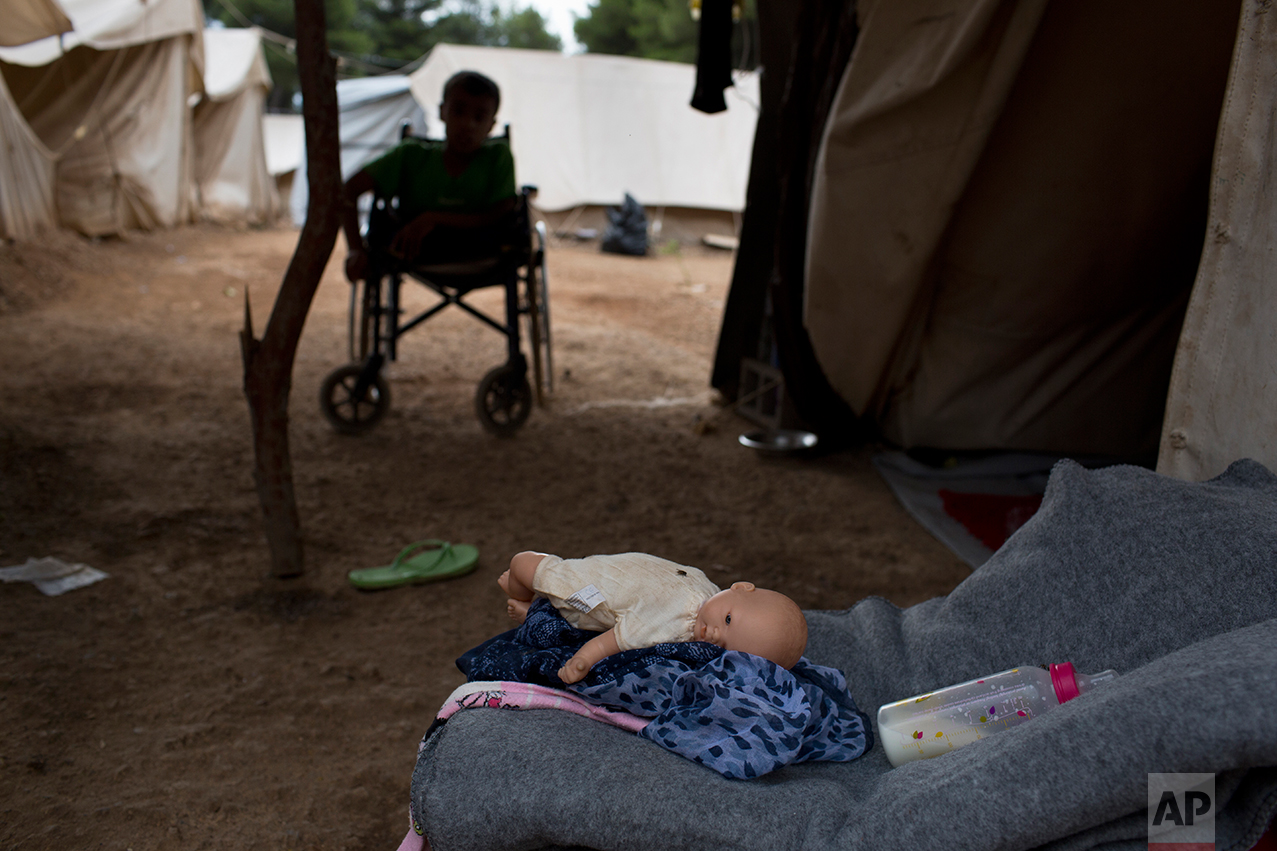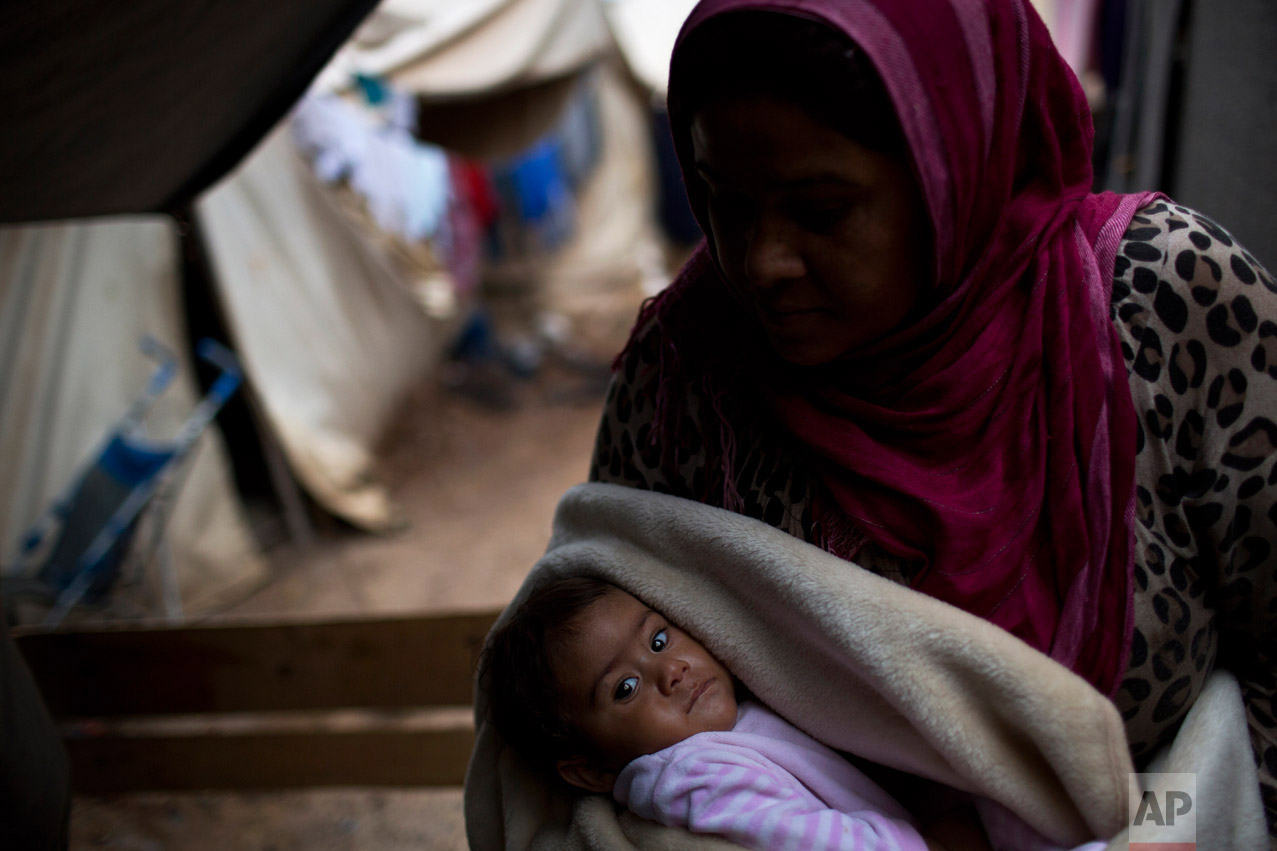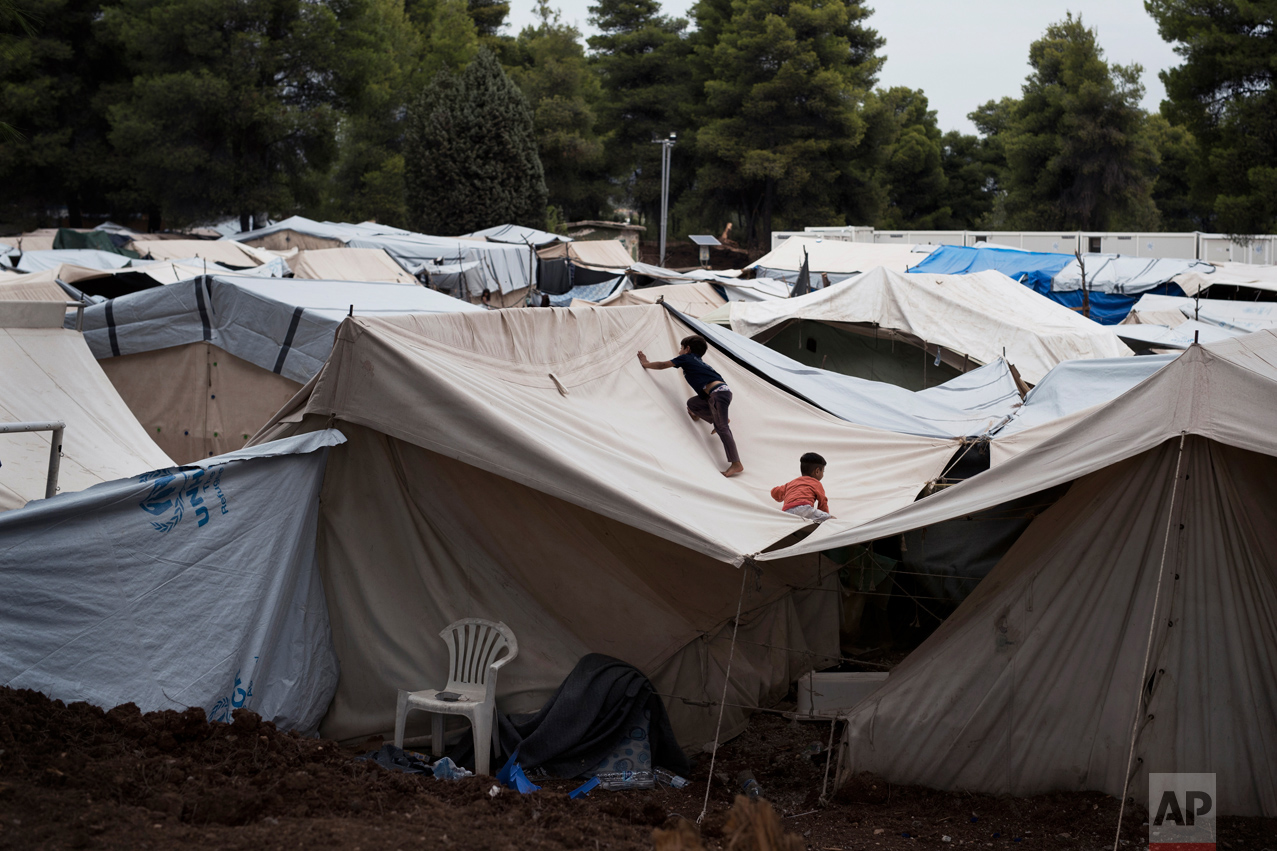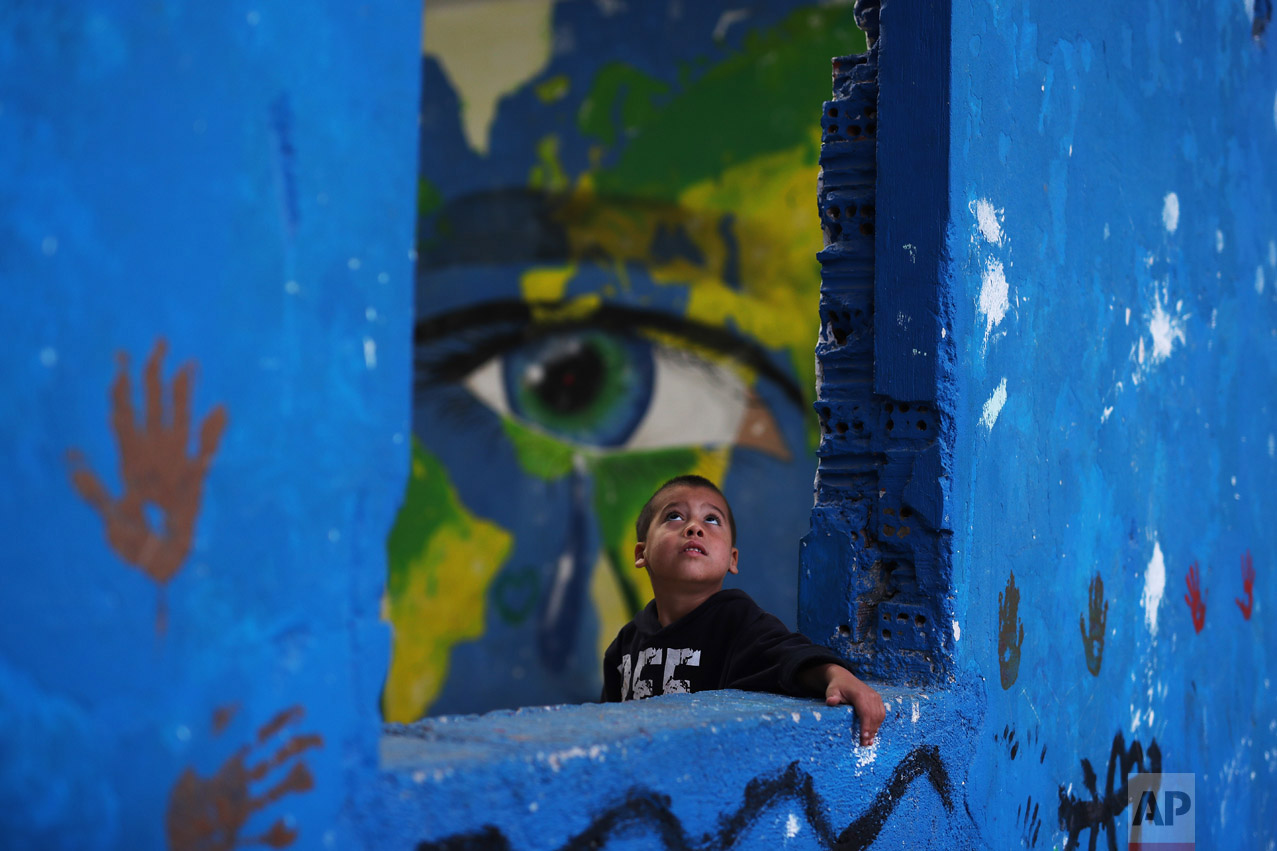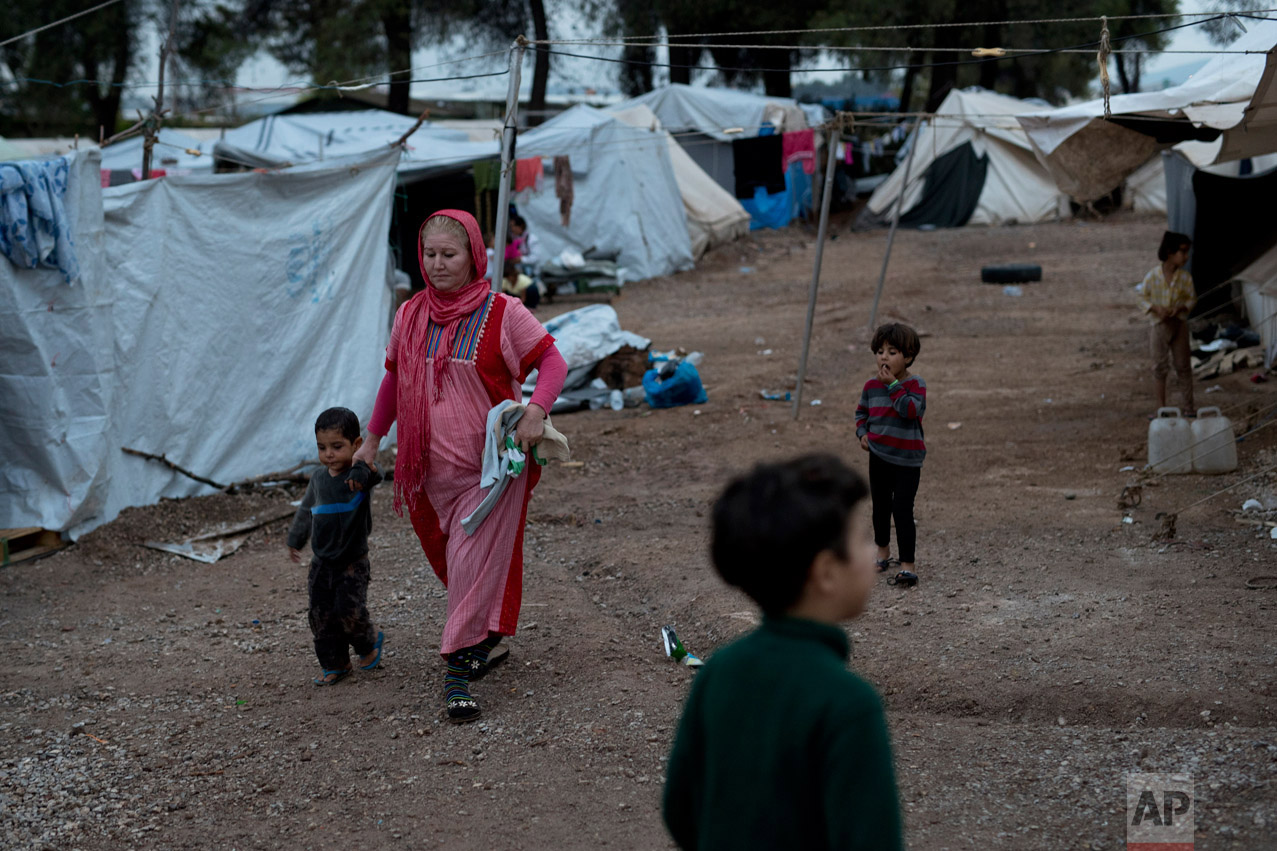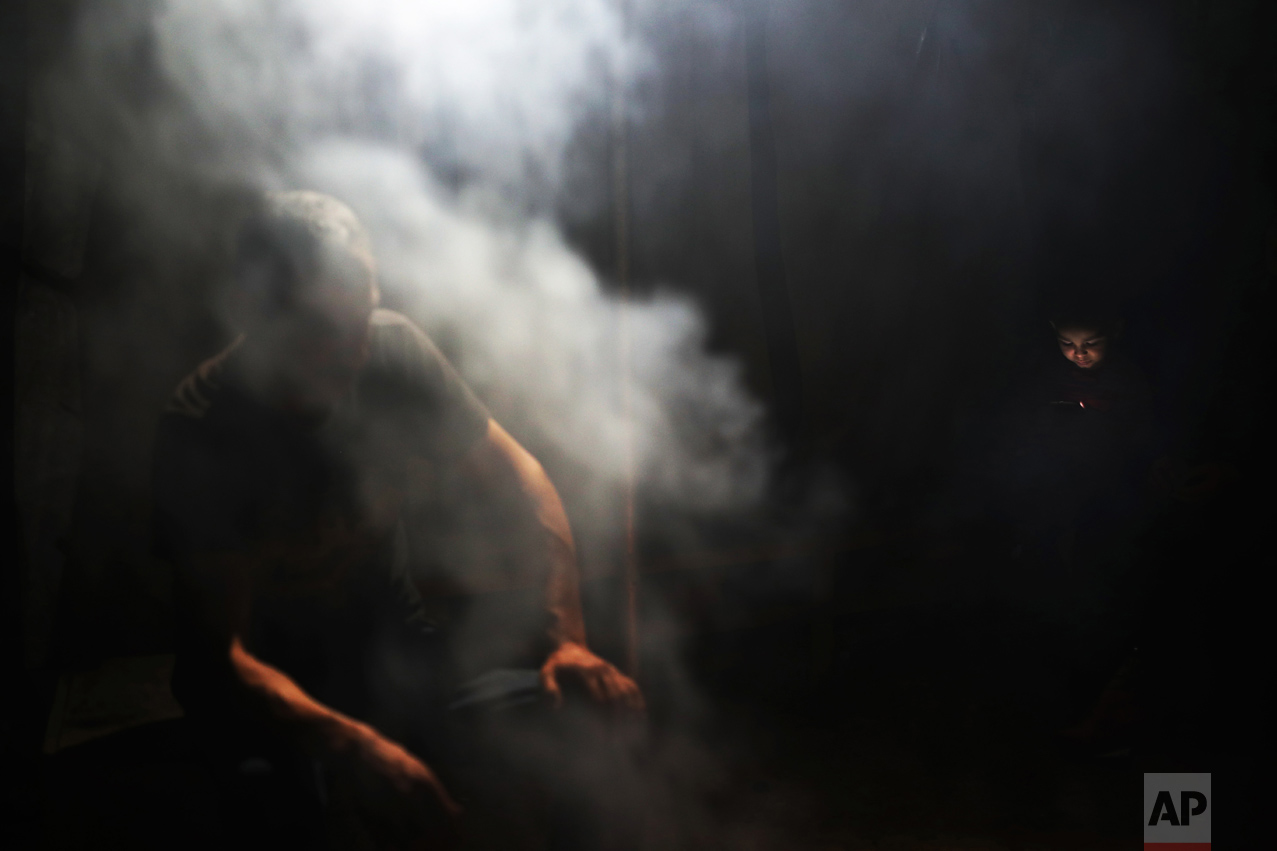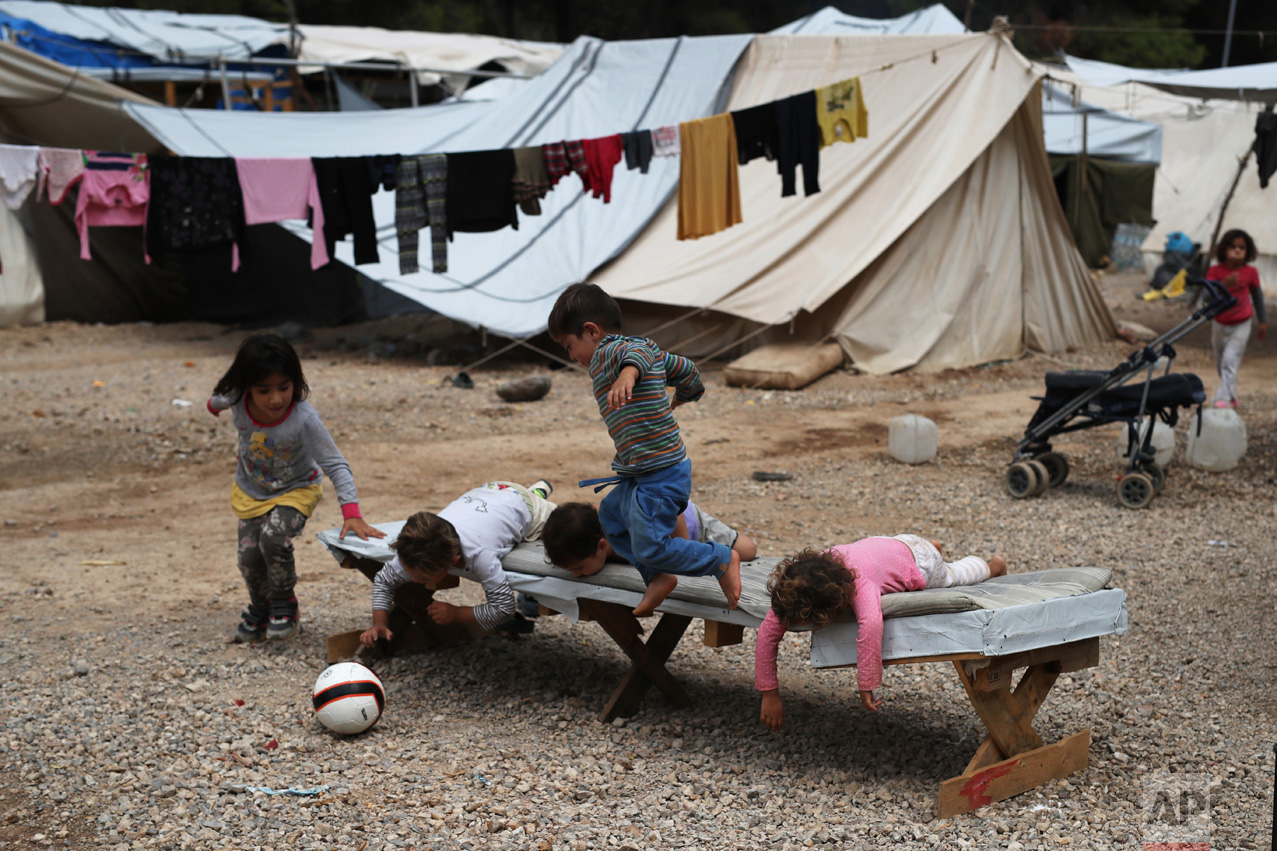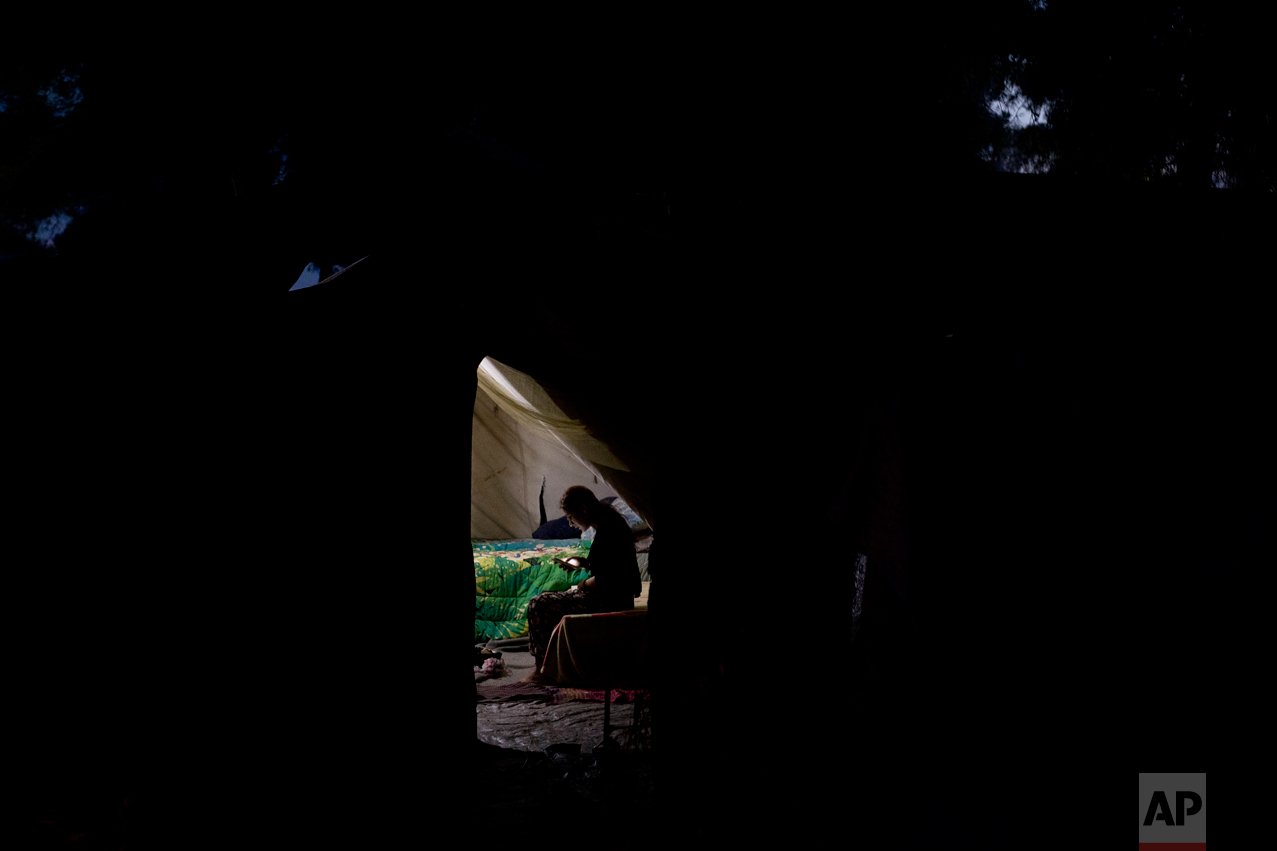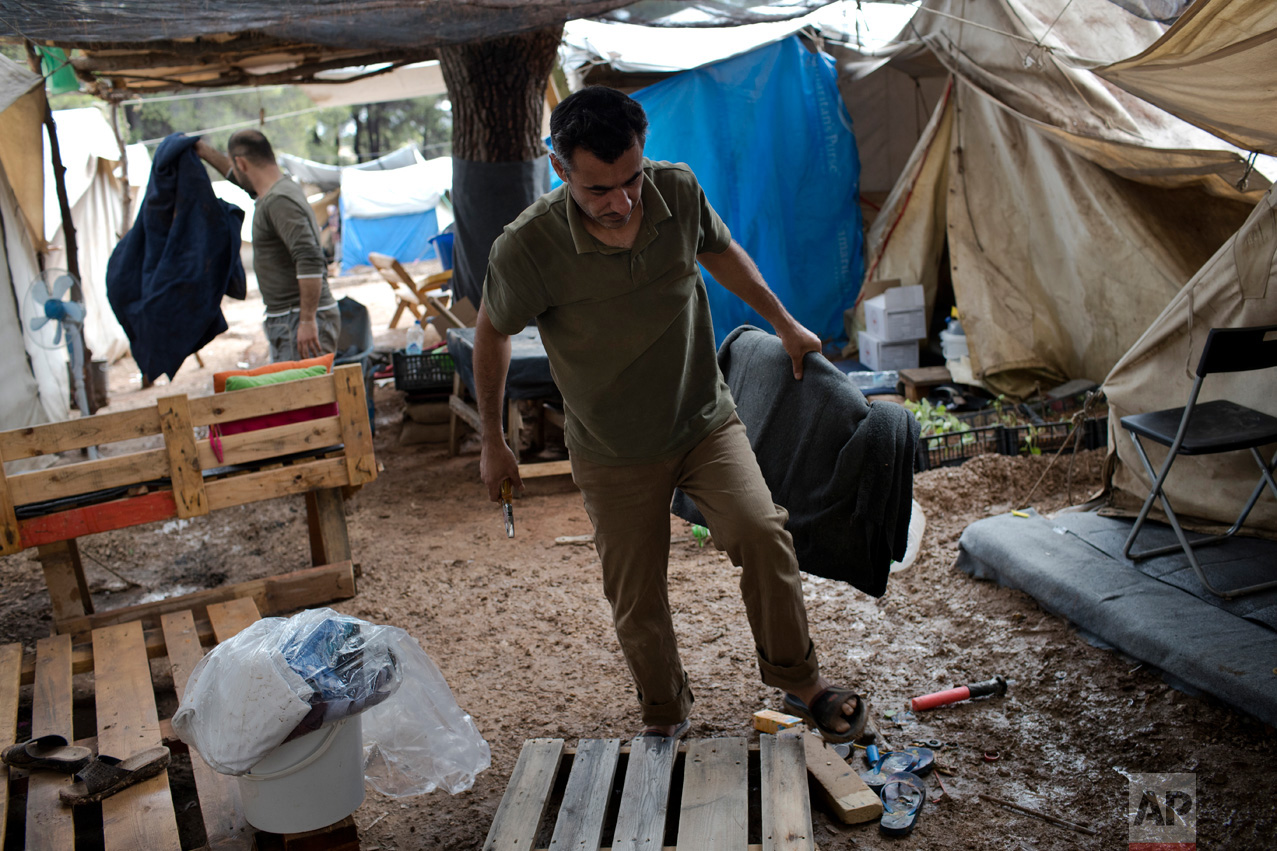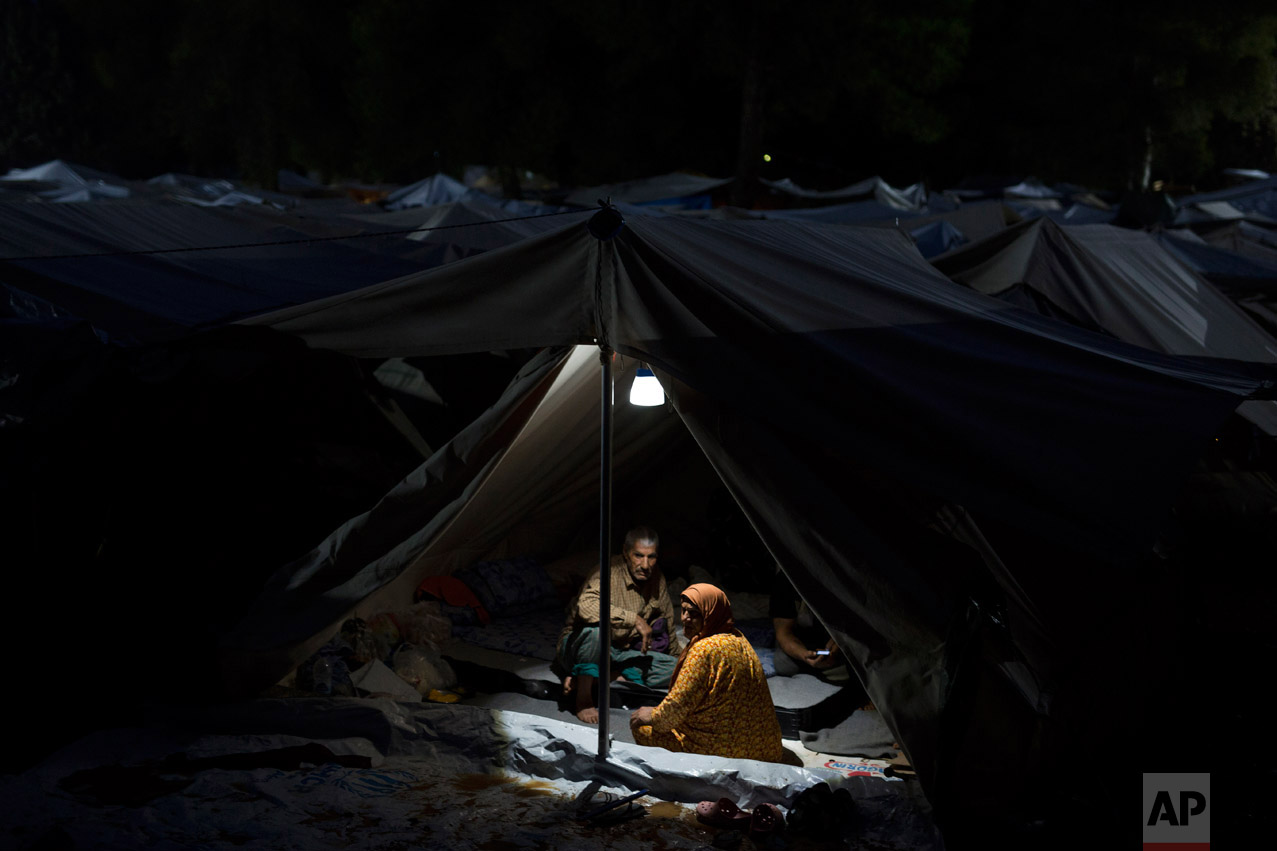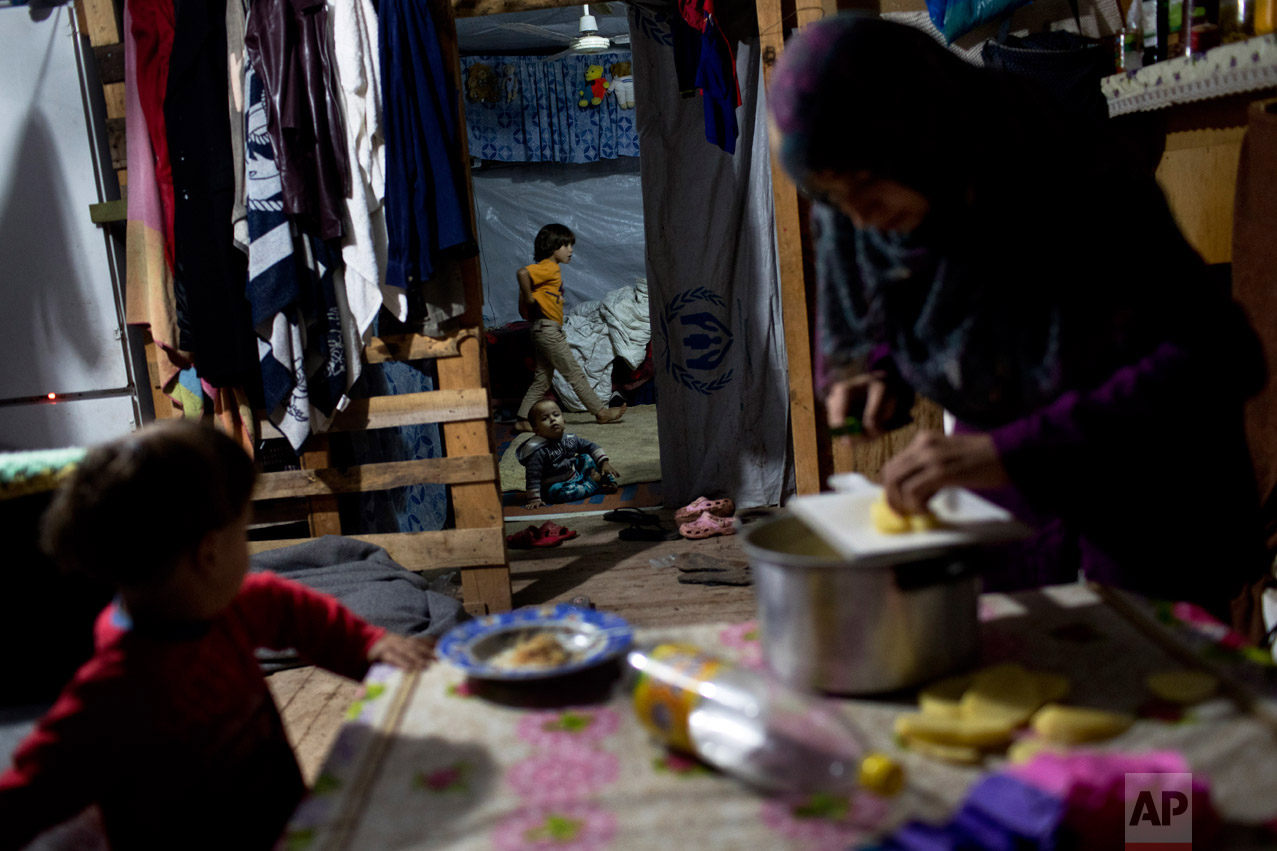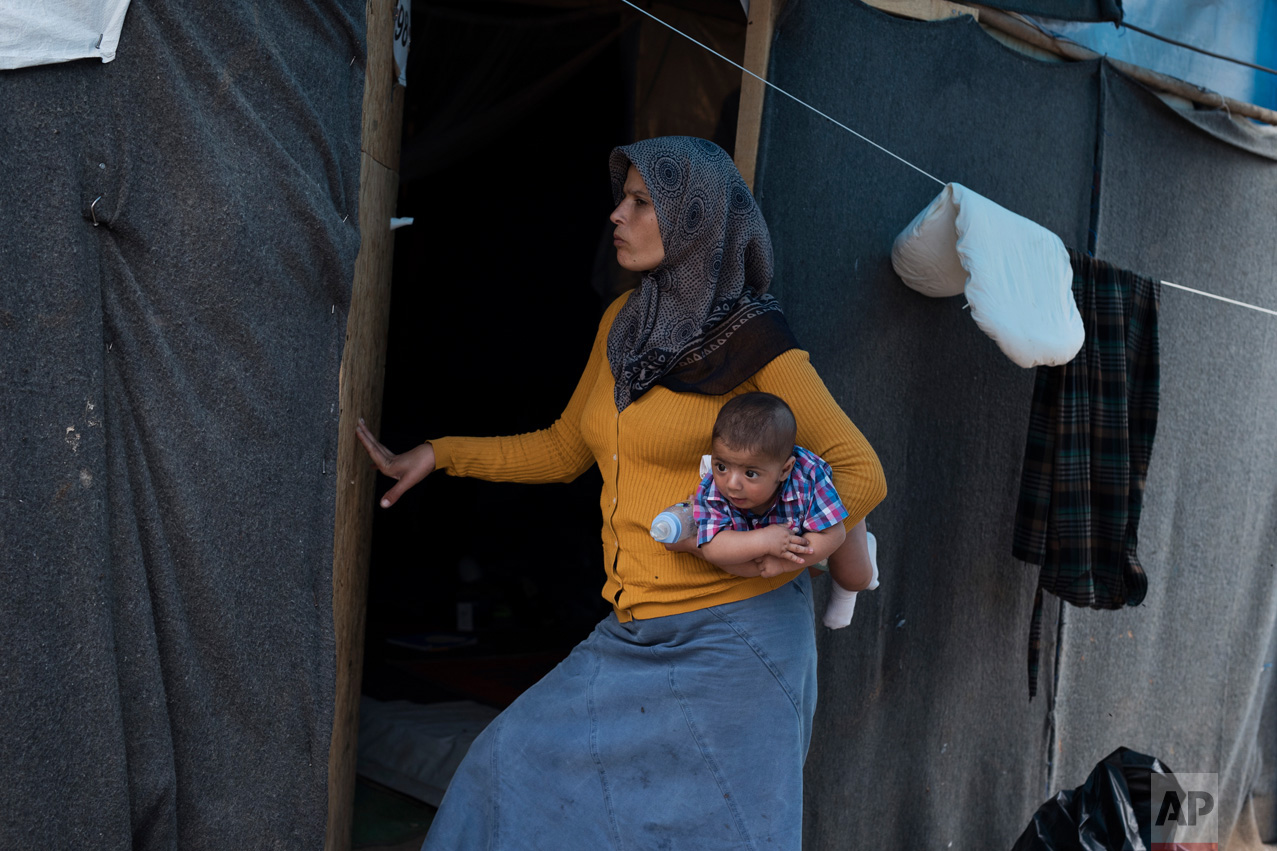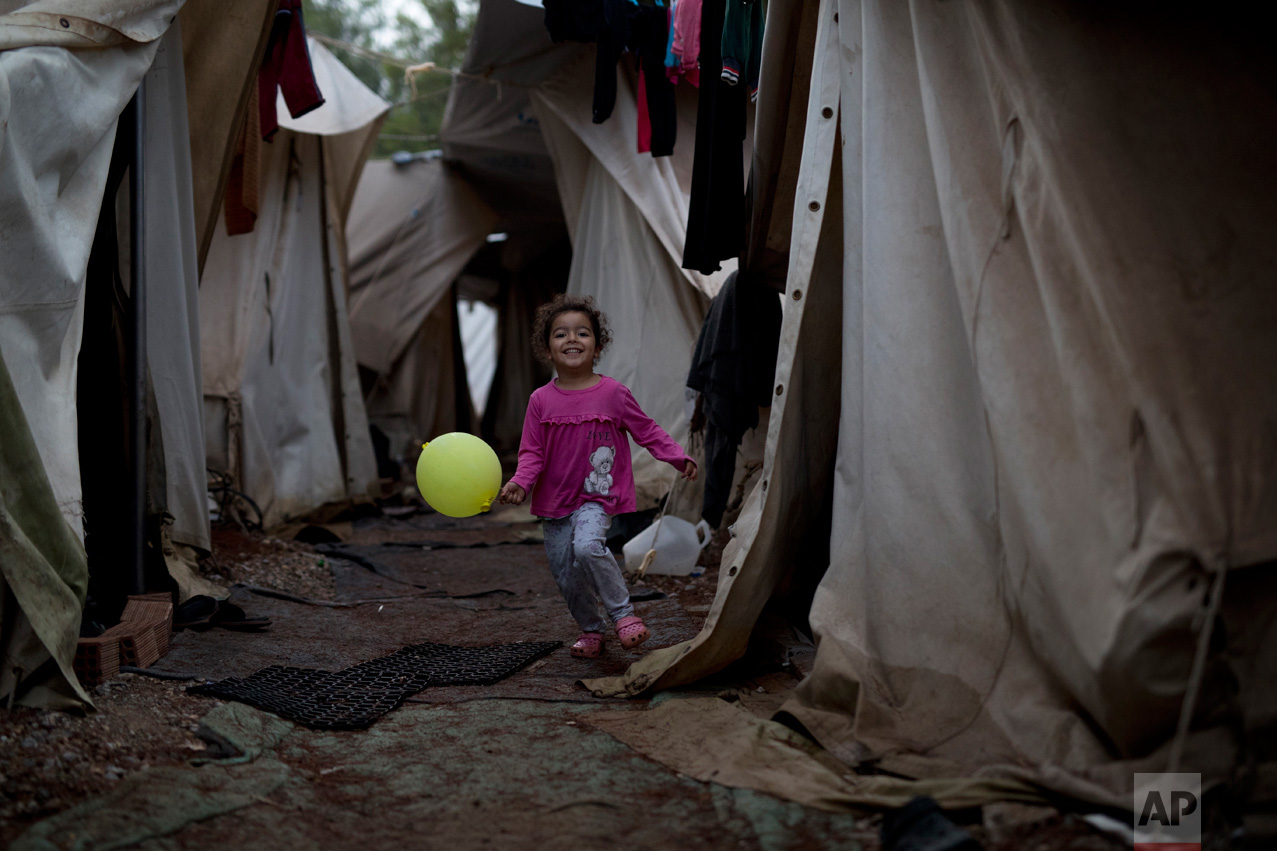Exiled in despair: Migrants in Greece losing hope

Syrian toddler Ritsona, with large brown eyes and a quick smile, was named after the refugee camp where her family stayed when she was born.
Six months later, she’s still there, faced with a future that looks increasingly grim.
Ritsona spent the first few weeks of her life in and out of hospital, after doctors were alerted to serious birth defect in her lower spine.
At the camp in central Greece, she spends her days on a flimsy foldout bed, as her father, Mohammed Khalil Isa, tends to his other four children, including 15-year-old Ahmed who uses a wheelchair and suffered from a similar illness. Other fathers try to protect their tents from rain and overnight cold.
Like dozens of refugee camps hastily created around the country, Ritsona started with tents set up in an abandoned military facility.
But signs of permanence - along with boredom and despair - are setting in as European Union countries fall further behind on commitments to take in those who fled from war.
More than 60,000 refugees and migrants are stuck in Greece, stranded by measures designed by the European Union to stop more traveling to the continent. Only 4,500 people - less than 10 percent of the total - have been placed so far in EU countries, where anti-immigrant sentiment is on the rise.
Greece’s government is scrambling to provide container huts before the winter, while camp dwellers have turned the tent city into a tiny shanty town: hammering furniture together out of scrap wood, cooking on cinder block stoves and hoisting tarp covers for roofing.
After a recent downpour, Syrian refugee Yousef Hanash cleared mud away from the base of his tent. On quiet days, he spends the afternoon teaching two of sons how to play chess.
A father of four, Hanash said he came to Europe as a last resort, unable to keep his family safe after his cheese factory was destroyed in the war and he moved around Syria.
He paid smugglers to make it across Turkey, reaching Greece by dinghy just before a late March deadline, after which new arrivals were detained for deportation.
“Our plan was to go to any country in Europe, to save our children from war and give them a better life,” Hanash said.
“But there is nothing for us to do here. No jobs or opportunities. Life here is miserable. All we can do is deal with the weather, the heat, the cold and the rain,” he said.
“We escaped from war and an immediate death. But here we are dying every day.”
Text from the AP news story, Exiled in despair: Migrants in Greece losing hope, by Petros Giannakouris
Follow AP photographers on Twitter
See these photos on APImages.com
Written content on this site is not created by the editorial department of AP, unless otherwise noted.
Visual artist and Journalist

